Virtual debate held for Pittsburgh’s mayoral candidates
March 31, 2021
On Friday, March 26, Mayor Bill Peduto and his challengers PA Rep. Ed Gainey, former Pittsburgh Police officer Tony Moreno and activist Will Parker debated racial inequalities in Pittsburgh in their first in-person debate, a showcasing of some of the primary candidates before the May 18 primary for the 2021 Pittsburgh mayoral election.
The debate, held at Pittsburgh Public Schools’ Westinghouse Academy, was moderated by the school’s students who began the debate by asking the candidates to introduce themselves and their agenda.
The two-term Democratic incumbent Peduto kicked off his introduction with a nostalgic homage of his life in a thriving 70s Pittsburgh to segue to the Steel City’s economic decline and racial disparities.
“I’ve dedicated these past 31 years to this one thing: Pittsburgh. I’ve put my life into being able to see this city rebound, to be able to see it come back, to be able to see it not only be stable but be sustainable for the next generation,” Peduto said.
Peduto continued, “We’ve talked too long of two Pittsburghs—a Black Pittsburgh and a white Pittsburgh. I’ve worked my career in order to change that, but there is still more work that needs to be done.”
Other candidates like Gainey, who represents the 24th District, also addressed the common theme of the night—ending “the tale of two cities.”
“I’ve been here my whole life, and I love this city, I do. I also understand the isolation and the divide and disparities that we have,” Gainey said. “Until we’re serious about addressing these disparities, then it’ll be just open conversation of rhetoric with no implementation or action. We will never get anything done that will heal this city.”
In his introduction, the former army veteran Moreno stated that Pittsburghers are not getting the services that they deserve equally at a cost. He said that there isn’t a housing problem in Pittsburgh but “a leadership problem.”
“I’m going to bring equality, and I’m going to bring equity. I’m going to make sure we’re all treated the same,” Moreno said.
The next line of questioning addressed how liveable the City of Pittsburgh is for Black people. The University of Pittsburgh’s 2019 study “Pittsburgh’s Inequality Across Gender and Race,” reported that it found serious disparities for Black women when it came to maternal mortality rates, poverty rates and work opportunities.
Gainey said he was exhausted by the rhetoric surrounding the disparities in the city.
“If we don’t have leadership that prioritizes the fact how we need to uplift Black women and the Black community in the City of Pittsburgh, the status quo won’t grow, and we will never begin to have a city for everybody,” Gainey said. “We deserve the same love and support as every other neighborhood in this city.”
Peduto said when he was elected into office, he and his team questioned whether there were disparities in the city. He created the Gender Equity Commission to name and address the inequalities between men and women in Pittsburgh. The mayor commissioned the Pitt report.
Moreno said, “when we talk about inequity in this city, we have political answers being put on personal problems.”
Parker also shared the same sentiment with Moreno about the lack of leadership in the city and pointedly addressed Peduto.
“Let me make this clear: Pittsburgh can and has the ability to be a liveable city, but it starts with intentional inclusion and it starts with leadership,” Parker said. “I don’t know about you, but where I come from when you show up late like Bill Peduto did today, at this debate, you don’t get reelected. You don’t get hired, especially for a third term.”
Gainey said the lack of support from the City of Pittsburgh in Black and brown communities during the pandemic was very apparent, but that it isn’t the only pandemic plaguing these underserved communities.
“We got a pandemic of access and opportunity to employments and contracts. We got a pandemic in the police in the community,” Gainey said.
Moreno said that the increase in crime and policing in Pittsburgh has to do with the lack of communication with the mayor’s office and the police because police have wanted to implement a mobile unit that includes mental health training since 2012.
Moreover, Gainey mentioned the lack of disciplinary action taken against Pittsburgh Police officers in a private Facebook group that called Black Lives Matter protesters “terrorists and thugs,” alongside other transphobic posts.
“See when Black lives matter it’s not just in conversation, it’s in action. At the end of the day, leadership is not a position, leadership is an action. We can still talk about rhetoric, but if you haven’t planted the seed of growth in eight years, you will not do in the next four,” Gainey said.
Alongside the issue of policing, the displacement of Black people and the gentrification of historic Black neighborhoods was a crucial part of the debate for the candidates.
Moreno stated that in 2017 Pittsburgh lost 7,000 Black residents from the area, replaced by white young adults who live in gentrified areas of Pittsburgh.
Peduto followed by stating, “Gentrification is real. You know what drives people out of a community? Disinvestment.”
He said that Pittsburgh’s declining number of Black residents is because of “Black plight” and not necessarily because of gentrification. The mayor stated that Black people are leaving Pittsburgh because they want better standards of living, education and opportunity for themselves and their children.
To put a halt to gentrification and its effects on Black neighborhoods, his solution is to provide community-based opportunities to empower the disinvested communities. Also, he suggested a two-track plan for affordable housing and market-rate housing.
Gainey responded to Peduto and questioned the mayor’s stance on Black residents leaving Pittsburgh solely based on opportunity instead of gentrification.
“Ask the people in East Liberty how it feels to be gentrified,” Gainey said. “We can’t speak out of both sides and think that we’re making sense. Either we say gentrification is real without an excuse or it’s not.”
Democrat Michael Thompson is also on the ballot but said on Twitter that he was not invited to the debate. Will Parker is not currently on the ballot but said that he is seeking to gain enough signatures to run as an independent for the fall election.



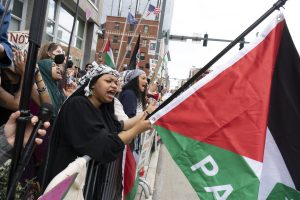
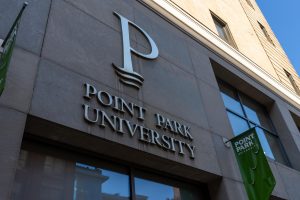
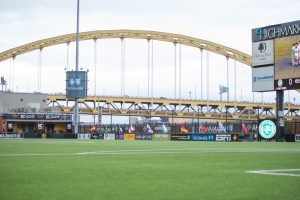
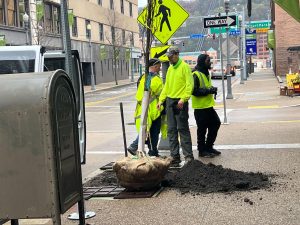
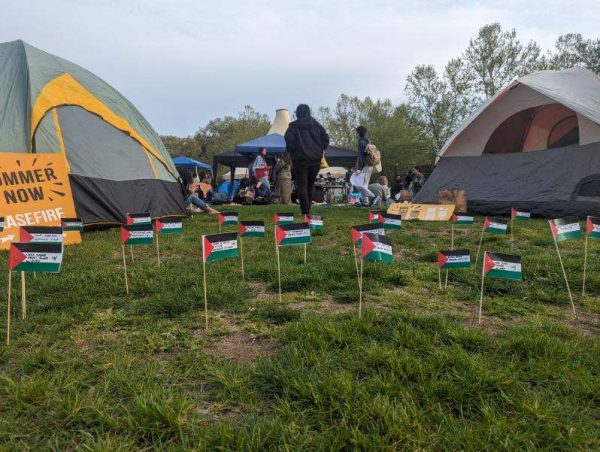
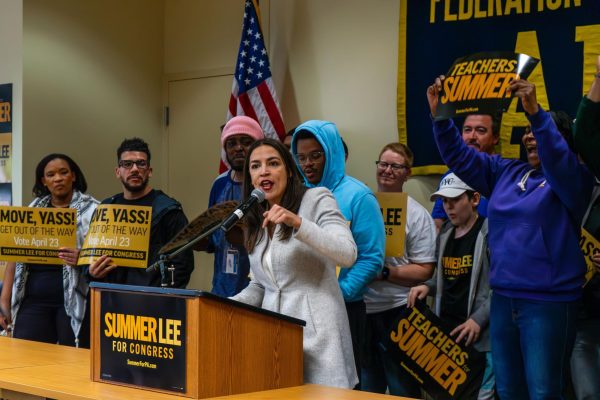
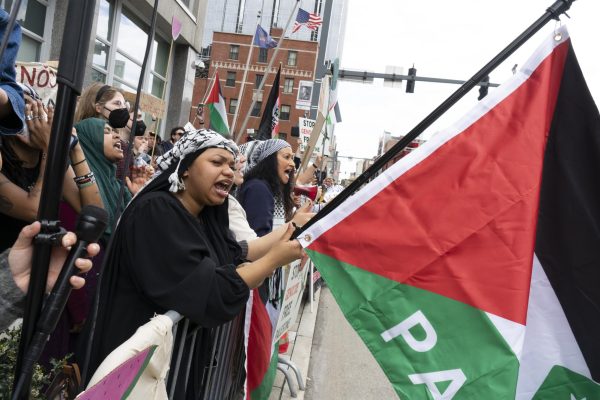
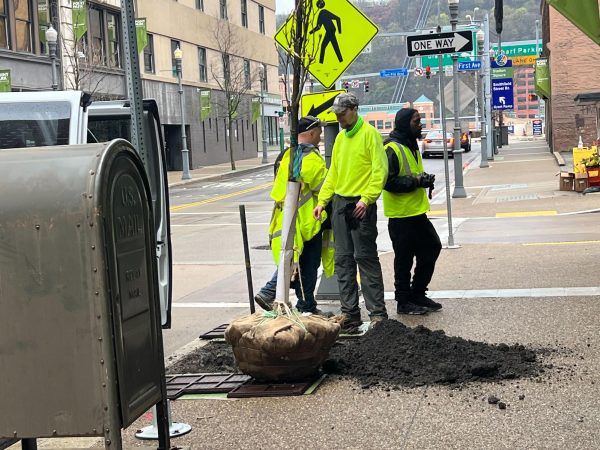
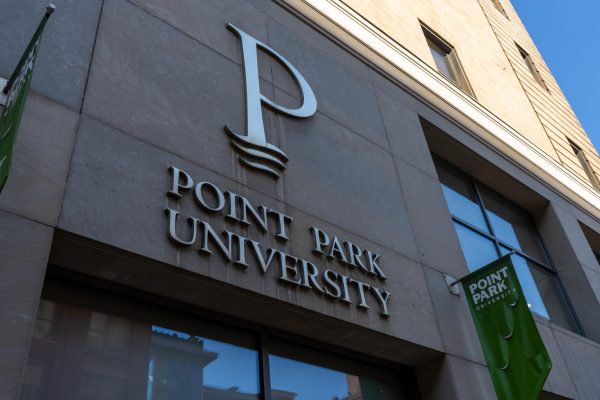


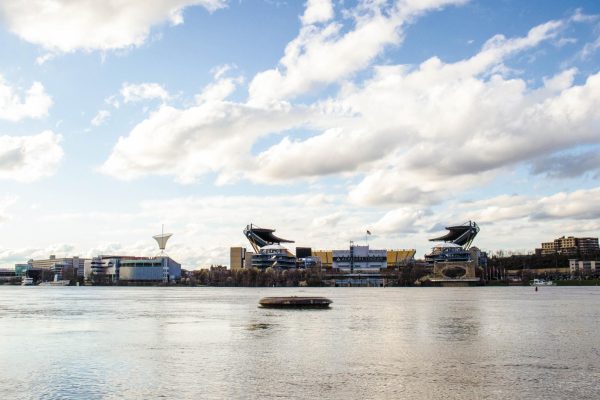
Ethan • Apr 12, 2021 at 10:07 pm
No hyperlink to the virtual debate is found within your piece to review and compare to your assessment